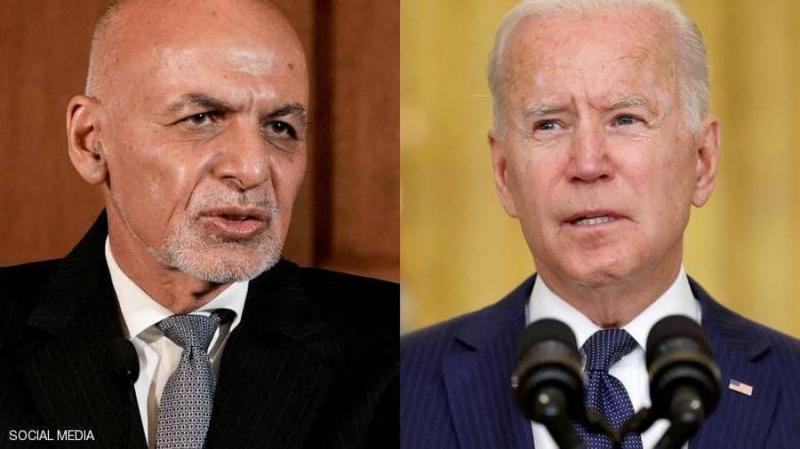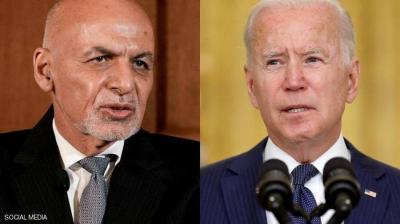A transcript of a phone call obtained by Reuters shows the last call between then-U.S. President Joe Biden and Afghan President Ashraf Ghani before the Taliban gained full control over Afghanistan. The call included discussions between the two leaders about military aid, political strategy, and tactical communication arrangements, yet neither was aware or prepared for the looming danger of the country falling entirely to the Taliban. The two men spoke for about 14 minutes on July 23.
On August 15, Ghani fled the presidential palace as the Taliban entered Kabul, leading to tens of thousands of desperate Afghans fleeing or trying to escape, and resulting in the deaths of 13 U.S. soldiers and dozens of Afghan civilians in a suicide attack at Kabul airport during a frantic U.S. military evacuation. During the call, Biden offered assistance if Ghani could publicly clarify that he had a plan to manage the deteriorating situation in Afghanistan, stating, "We will continue to provide intensive air support if we know what the plan is."
Days before the call, the U.S. had conducted airstrikes to support Afghan security forces, a move the Taliban claimed violated the Doha peace agreement. Biden advised Ghani to gain the approval of influential Afghans for his military strategy moving forward and suggested appointing a "fighting figure" to lead those efforts, referring to Defense Minister General Bismillah Khan Mohammadi. Biden praised the Afghan armed forces, trained and funded by the U.S. government, telling Ghani, "You clearly have the best army... you have 300,000 well-armed soldiers, compared to 70,000 or 80,000, and they are certainly capable of fighting well."
However, days later, the Afghan army began to retreat across the country and provincial capitals with little resistance against the Taliban. Throughout most of the call, Biden focused on what he described as the Afghan government’s "perspective" on the problem. He stated, "I need to tell you the prevailing view around the world and in parts of Afghanistan, I think things are not going well regarding the fight against the Taliban. There is a need, whether that is true or not, to paint a different picture."
Biden told Ghani that getting prominent Afghan political figures to hold a joint press conference to support a new military strategy "would change the prevailing perception and change a lot of things, I believe." These statements suggested that Biden did not foresee the major insurgency and collapse occurring just 23 days later. He said, "We will continue to fight vigorously, diplomatically, politically, economically, to ensure that your government not only survives but thrives."
The White House issued a statement after the call emphasizing Biden’s commitment to supporting Afghan security forces and his administration’s efforts to secure financial allocations for Afghanistan from Congress. Ghani informed Biden that he believed peace could be achieved if he could "rebalance the military solution," but Biden added, "We need to move urgently."
Ghani stated, "We face a widespread invasion consisting of the Taliban and full Pakistani planning and logistical support, in addition to at least 10,000 to 15,000 international terrorists, most of them Pakistanis, being pushed into this." Afghan government officials and U.S. experts have long pointed to Pakistani support for the Taliban as key to the group's resurgence, a claim denied by the Pakistani embassy in Washington. A spokesperson for the embassy told Reuters: "It is clear that the myth of Taliban fighters crossing from Pakistan is a convenient narrative, unfortunately propagated by Mr. Ashraf Ghani to justify his failure in leadership and governance."
As the two presidents conversed, Taliban insurgents captured about half of the regional centers in Afghanistan, indicating a rapidly deteriorating security situation.




